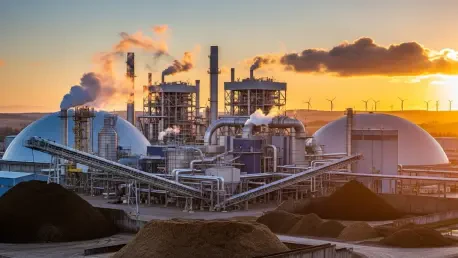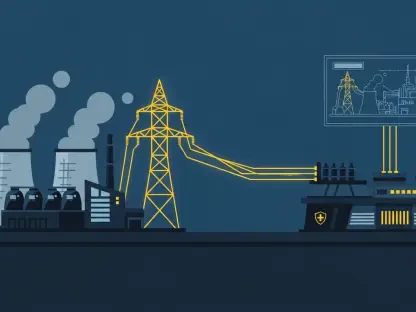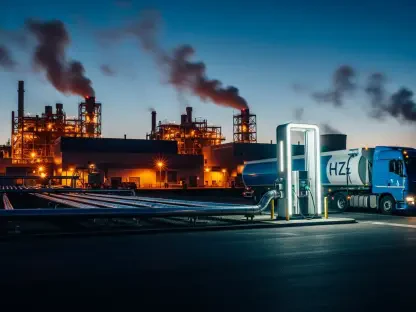I’m thrilled to sit down with Christopher Hailstone, a renowned expert in energy management and renewable energy, with a deep understanding of electricity delivery in the UK. As our Utilities expert, Christopher offers invaluable insights into grid reliability, security, and the evolving landscape of sustainable energy. Today, we’re diving into the recent developments surrounding Drax Group, a key player in the UK’s energy sector, and the ongoing investigation by the Financial Conduct Authority (FCA) into their biomass sourcing disclosures. We’ll explore the implications of this probe, the controversies around biomass sustainability, and what it all means for the future of renewable energy in the UK.
Can you start by giving us a broad picture of Drax Group’s role in the UK energy sector and the type of energy they produce?
Absolutely, Carlos. Drax Group is a significant player in the UK’s energy landscape, generating around 5% of the country’s electricity. They’ve converted their former coal plants to burn biomass, which is essentially organic material like wood pellets used as fuel. This shift has positioned them as a major contributor to the UK’s renewable energy goals, though it’s not without controversy, as we’ll discuss. Their operations are heavily tied to government subsidies aimed at supporting the green energy transition, which makes their role both pivotal and scrutinized.
What can you tell us about the Financial Conduct Authority’s current investigation into Drax and the specific focus of their review?
The FCA has launched an investigation into Drax’s biomass sourcing disclosures, specifically looking at their annual reports from 2021 to 2023. They’re examining statements made between January 2022 and March 2024 to ensure compliance with disclosure rules. Essentially, the FCA wants to verify whether Drax has been transparent and accurate in how they’ve reported their biomass sourcing practices. It’s a significant probe because these disclosures impact investor trust and public perception of their sustainability claims.
How has Drax responded to this investigation by the FCA, and what steps have they indicated they’re taking?
Drax has publicly stated that they are fully cooperating with the FCA during this investigation. However, they’ve been quite tight-lipped beyond that, not sharing specific details about their internal processes or any corrective measures they might be implementing. This approach suggests they’re taking the matter seriously but are likely waiting for more clarity from the FCA before making broader statements or commitments.
Drax has faced regulatory scrutiny before. Can you walk us through what happened with the Ofgem penalty last year and its implications?
Certainly. Last year, Ofgem, the UK’s energy regulator, slapped Drax with a £25 million fine—equivalent to about $33.8 million—for misreporting data related to wood sourced from Canadian forests. The issue was more about procedural inaccuracies in their reporting rather than substantive wrongdoing. Importantly, Ofgem’s review didn’t find evidence that Drax breached sustainability obligations or improperly received renewable obligation certificates. Still, the fine was a blow to their reputation and highlighted the need for tighter controls in how they document and report their sourcing.
There’s ongoing debate about biomass as a renewable energy source. How does Drax justify using biomass, and what’s their stance on its sustainability?
Drax has been quite vocal in defending their use of biomass. They argue that they primarily use wood byproducts—think residues or leftovers from trees harvested mainly for lumber, not whole trees cut down just for fuel. Their position is that sourcing from sustainably managed forests actually promotes forest growth by supporting responsible forestry practices. They claim this approach aligns with renewable energy goals and helps reduce carbon emissions compared to traditional fossil fuels like coal, which they’ve phased out at their plants.
On the other hand, what are some of the criticisms from environmental groups regarding Drax’s biomass operations?
Environmental groups have been pretty critical of Drax and the broader concept of biomass as a sustainable energy solution. Their main argument is that burning wood for energy releases carbon dioxide into the atmosphere, sometimes at levels comparable to or even higher than fossil fuels in the short term. They question whether the regrowth of forests can offset these emissions quickly enough to make biomass truly carbon-neutral. These criticisms have gained traction, especially as the public and policymakers push for clearer, more immediate reductions in emissions, putting pressure on companies like Drax to prove their green credentials.
Financially speaking, how has this FCA investigation affected Drax, particularly in terms of their performance in the stock market?
The announcement of the FCA investigation had an immediate impact on Drax’s share price. On the day the news broke, their shares dropped as much as 12.4%, hitting 617 pence in early trading. Later in the day, the losses were pared back a bit, settling at a 9.2% decline. It’s a clear sign that investors are nervous about the potential outcomes of this probe and what it might mean for Drax’s future, especially regarding regulatory risks and public perception of their operations.
Some analysts have pointed to potential political consequences from this investigation. Can you elaborate on how this might influence government policy on biomass energy?
Analysts are concerned that the FCA probe puts Drax back under a harsh spotlight, which could amplify political pressure on the UK government’s biomass support plans. Currently, there’s a plan to halve subsidies for Drax between 2027 and 2031, and this investigation might fuel debates about whether biomass should continue to receive significant public funding. If public or political sentiment shifts further against biomass due to sustainability concerns, we could see tighter restrictions or reduced support, which would directly impact Drax’s business model and the broader biomass sector.
Looking ahead, what is your forecast for the future of biomass energy in the UK, especially in light of these regulatory and environmental challenges?
I think the future of biomass energy in the UK is at a crossroads. On one hand, it plays a critical role in the transition away from coal and provides a steady, dispatchable source of renewable power, which is vital for grid stability as we integrate more wind and solar. On the other hand, the sustainability concerns and regulatory scrutiny, as we’re seeing with Drax, could lead to stricter standards or a gradual phasing out of subsidies post-2027. My forecast is that biomass will remain part of the energy mix through 2030 as the UK pushes to decarbonize its electricity sector, but its prominence might wane unless companies can definitively prove its environmental benefits and improve transparency. It’s going to be a challenging balancing act for both industry and policymakers.









